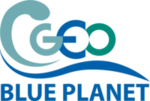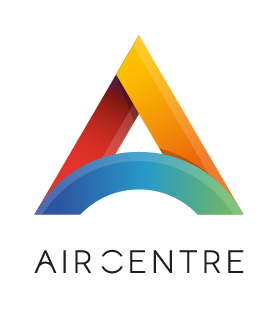Goals and Scope
The November 2018 workshop on “Technologies for Observing and Monitoring Plastics in the Oceans” focused on technology initiatives able to address the mounting global marine debris with particular focus on plastics in the ocean. A main challenge addressed was the development of a methodology for monitoring marine debris indictors, in particular the Indicator 14.1.1 “Index of coastal eutrophication and floating plastic debris density” of SDG 14 “Conserve and sustainably use the oceans, seas and marine resources for sustainable development.” The major outcome of this workshop was a set of activities and goals for six months, two years and 5 years, which provided an initial road map (see Garello et al., 2019).
The December 2019 workshop on “Marine Debris Indicators: What's Next” brought together experts on observations and monitoring of marine debris and plastic with decision and policy makers in need of comprehensive information on this challenge. A main goal was to converge towards common best practices and potential standards. With relevant stakeholders present, the workshop fostered a collaborative network to ensure that evidence-based decision and policymaking are possible. The workshop explored the potential for a platform linking the data to actions and develop an implementation strategy for observing networks and modeling platforms to support conjointly the different efforts to address the global challenge of marine debris. The draft road map compiled in 2018 was augmented with more detailed six-months activities and a case study on “Reducing Plastics in the Ocean within a Growing Global Economy: Understanding the Information Needs to Support Interventions” was initiated. This case study would prepare the current workshop.
The Third Workshop on Marine Debris Indicators builds on the previous two workshops. It will summarize the outcomes of the case study and progress the case study with the goal of having a comprehensive overview of the information needed to inform action on marine debris, both in terms of reducing the flows of debris into the ocean, monitoring the amount and trajectory of debris in the ocean, and assessing the impacts of the debris on the marine biosphere and feedbacks into the humansphere. The status of implementation of the Integrated Marine Debris Observing System (IMDOS) will be reviewed and developments of means to link information to action will be discussed.
Participation
The workshop will bring together a broad range of stakeholders from the Earth observation communities, research communities assessing the intermediate and longterm impacts of marine debris, United Nations and national agencies engaged in progress towards SDG 14, businesses that are aiming to tackle various aspects of the problem of marine debris, as well as, experts working at the interfaces between these communities with the goal to ensure that useable knowledge required for policy making and planning of action to address the challenge of marine debris is created and well linked to the decision makers.
Workshop Outcomes
The main outcomes of the workshop will be a white paper summarizing the knowledge needs and discuss steps towards meeting these knowledge needs. This white paper will be a valuable input for the earth observation communities engaged in implementing IMDOS and communities working on means to link data and knowledge to actions.
Additionally, a workshop report will document the workshop proceeds and report on the development of the road map.
Committees
Workshop Program Committee
- René Garello (IEEE OES/IMT Atlantique; Co-Chair)
- Hans-Peter Plag (IEEE OES/ODU; Co-Chair)
- Jillian Campbell (UNEP)
- Francois Galgani (IFREMER, tbc)
- Jose Moutinho (Air Centre)
- Emily Smail (GEO Blue Planet)
Warning: include(pages/Workshop_LOC.php): Failed to open stream: No such file or directory in /homepages/24/d257962391/htdocs/gstss/2020_Cascais/pages/Print_Full_Info.php on line 12
Warning: include(): Failed opening 'pages/Workshop_LOC.php' for inclusion (include_path='.:/usr/lib/php8.1') in /homepages/24/d257962391/htdocs/gstss/2020_Cascais/pages/Print_Full_Info.php on line 12
Logistics
Registration
To register for this workshop, please sign up for the workspace using the link WORKSPACE. After signing up for this collaborative workspace, you will be able to populate your personal profile and to register for the workshop.
There is no registration fee. The meals (coffee breaks and lunch) will be provided.
Contributions to the workshop
Note that this workshop is for the most parts a participatory workshop and active contribution from all participants is expected. Most of the few presentations will be invited keynotes. There is limited space for additional oral presentations. If you want to propose a presentation, please submit a title and abstract on the workshop contribution page. Then the organizers will decided whether the paper can be included in the program.
Note that all workshop participants will be asked to prepare a very brief personal presentation for the initial Session. See in the Workspace for details.
If you are signed up for the workshop, you can participate in all on-line conversations in the Workspace.
|
Venue
Venue is still tbd.
Travel Logistics
To be added.
Accommodation
To be added.
Meals
Lunch on the two days will be complementary. A workshop dinner may be organized on Friday evening.
|
|
Schedule and Program
Schedule
Time
| Session Description
|
Day 1
09:00-10:40 | Session 1: Collaborating across Sectors, Disciplines, and Scales
This session will provide the opportunity for all participants to get to know each other and to review the cross-scale, cross-sector, and cross-discipline nature of the challenges marine debris pose to the ocean and humanity, as well as the processes that fuel the increasing in marine debris over time.
As an assignment to prepare for the introduction, each participant is asked prepare a "personal" presentation following the template for the three slides available in the Workspace. The personal presentations have to be uploaded in the Workspace under "Workshop Contributions."
We allocate only 2 minutes per participant to present your slides!
After the individual introductions, there will be two keynotes with the first one given an overview of the challenge and the potentially global catastrophic risk marine debris poses to humanity and the Earth life-support system and the second one providing a summary of the ongoing activities to provide use-ready knowledge to society.
|
Day 1
10:45-12:30 | Session 2: The Case Study “Reducing Plastics in the Ocean within a Growing Global Economy: Understanding the Information Needs to Support Interventions”
This session will present the outcomes of case study and identify the remaining work to be done.
|
Day 1
14:00-15:30 | Session 3: Participatory Modelling as Part of the Case Study
The session will engage the workshop participants in a participatory modeling for the case study with main focus on the challenge of connecting data and derived knowledge to actions. The conceptual model available in the case study as well as the more advanced causal loop diagram and/or stock and flow model will provide a starting point for the participatory effort.
|
Day 1
16:00-17:30 | Session 4: Participatory Effort on Information Needs
The session will utilize the models resulting from the previous session to identify observations, information and knowledge that are needed to inform policy making and designing action to address the challenge of marin debris. The indicators agreed upon in various international programs will provide guidance for this dialogue.
|
Day 2
09:00-10:40 | Session 5: Listening Session: Stakeholders and Their Knowledge Needs
A range of stakeholders engaged in policy making and planning of actions to reduce the risk of marine debris entering the ocean and reducing marine debris in the ocean will communicate their knowledge needs that could be met by indicators.
|
Day 2
11:00-12:30 | Session 6: Linking Data and Knowledge to Actions
In this session, knowledge needs related to policy making addressing the challenge of marine debris will be introduced in two keynotes. After that, a participatory effort will be made to develop a vision for the initiative.
|
Day 2
14:00-15:30 | Session 7: The Role of GEO and GEO Blue Planet in Facilitating Observations
The session will focus on the implementaion of IMDOS and the role GEO and Blue Planet can take in this initiative. Contributions from other groups and organizations will be considered. A focus will be on how to harmonize observations, develop standards and best practices, and engage a global community of citizen scientists in the observations.
|
Day 2
16:00-17:30 | Session 8: Progressing the Roadmap
The road map will be reviewed and revised based on input from the participants. The session will conclude with a summary of the next steps and subsequent events.
|
|
Program
Day 1
| 0900 - 1030: | Session 1: Collaborating across Sectors, Disciplines, and Scales | | 1040 - 1100: | Coffee/Tea Break |
| 1100 - 1230: | Session 2: The Case Study “Reducing Plastics in the Ocean within a Growing Global Economy: Understanding the Information Needs to Support Interventions” |
| 1230 - 1400: | Lunch Break |
| 1400 - 1530: | Session 3: Participatory Modelling as Part of the Case Study |
| 1530 - 1600: | Coffee Break |
| 1600 - 1730: | Session 4: Participatory Effort on Information Needs |
| 1900 - 2100: | Workshop Dinner |
Day 2
| 0900 - 1040: | Session 5: Listening Session: Stakeholders and Their Knowledge Needs |
| 1040 - 1100: | Coffee Break |
| 1100 - 1230: | Session 6: Linking Data and Knowledge to Actions |
| 1230 - 1400: | Lunch Break |
| 1400 - 1530: | Session 7: The Role of GEO and GEO Blue Planet in Facilitating Observations |
| 1530 - 1600: | Coffee Break |
| 1600 - 1730: | Session 8: Progressing the Roadmap |
|
Other Information





